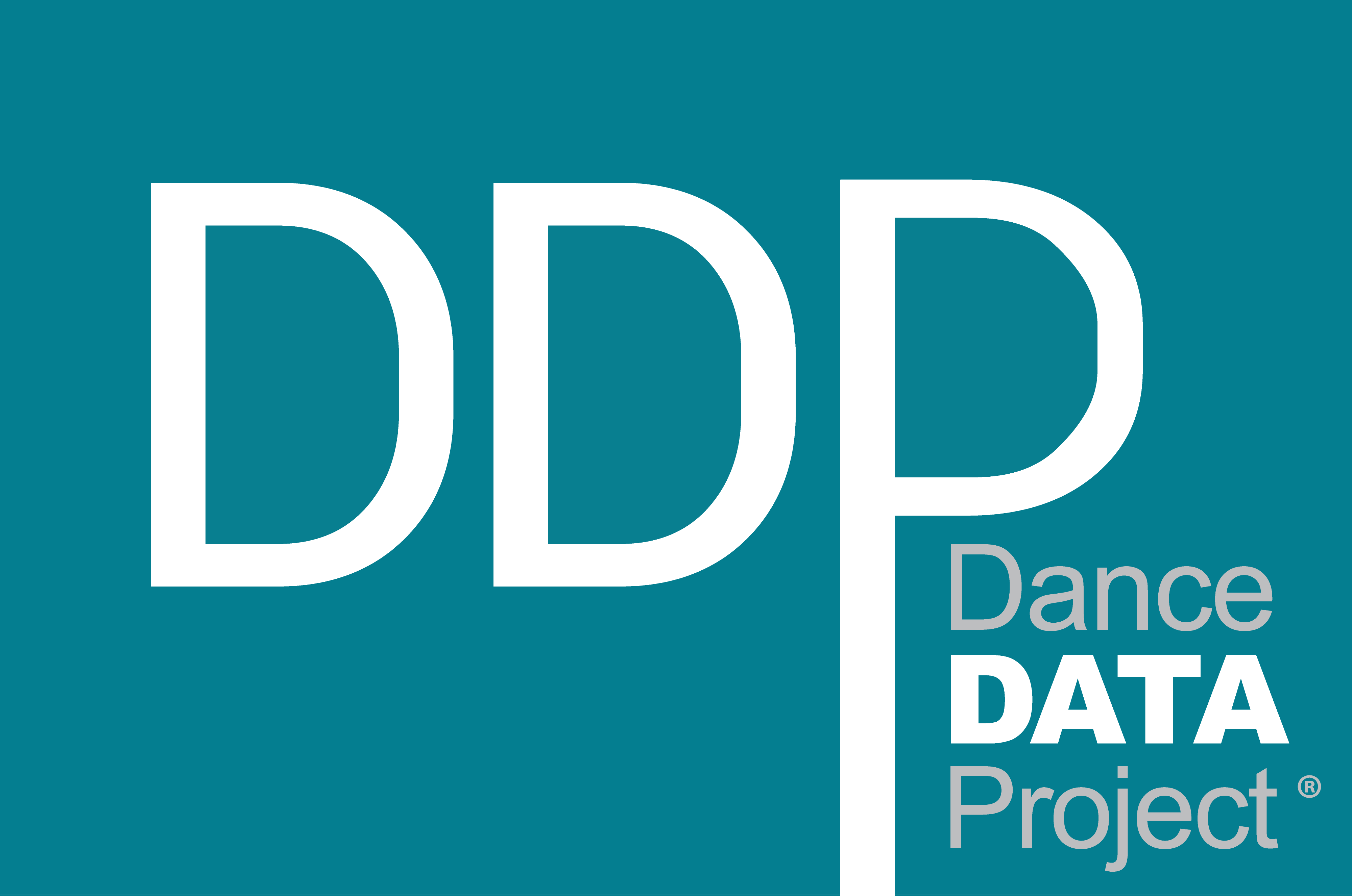Choreographer Profile: Avatâra Ayuso
In 2008, you founded ɅVɅ DANCE COMPANY as a dance laboratory that creates contemporary works with “a cast of female dancers and collaborators from a range of cultures and artistic disciplines.” How does the company help to promote and connect female choreographers, artists, and leaders from around the world?
AVA DANCE COMPANY is a space that welcomes those artists that share my values of collaboration, transparency, bravery, radical self-expression, and feminism. Anyone entering my productions knows that those are the starting points and respecting each other is essential to the creative process. Meanwhile, I make sure I always offer opportunities not only on stage to female artists (dancers, costume designers, set designers, composers, etc.) but also off stage in the form of mentorship, choreographic observerships, and networking activities where professional women get to meet other women in the sector.
Some of your most recent pieces include Remembrances, LIMBO, and Cuenta Regresiva. What is the creative and investigative process for each of your new pieces?
Very different for each of them! Sometimes the research process starts very early on, like in Remembrances, where I worked with Canadian Indigenous artists, this required a very deep understanding of Indigenous people and the history of the colonizer empires before being in the studio with the dancers. Limbo was a research that happened on a daily basis in collaboration with Chinese dancers and choreographers. Cuenta Regresiva was a work for 4 young dancers, where the research was pretty much focused on their identity and supporting them on that journey of discovery.
You’ve also published several pieces of research on dance sectors of non-European countries through collaborations with artists from different cultural backgrounds. Most recently, these have included collaborations with “artists from Burkina Faso, Japan, Senegal, Chile, Taiwan, Morocco, and Nunavut (Canadian Arctic).” Could you tell us more about this research? What have you uncovered through it?
Researching has been a great passion of mine since I went to University in Madrid (Spain). It taught me the value of digging deeper and above all understanding other perspectives. When I became a choreographer, I decided that learning about the challenges, but also the achievements of other dance sectors would give me the bigger picture I needed to collaborate better with other inspiring artists. This would also challenge the Eurocentric approach I have inherited from growing up in the Western world.
You’re also responsible for the founding of the charity AWA DANCE (Advancing Women’s Aspirations with Dance), which is dedicated to unlocking leadership potential in women and girls. How do you use dance to advance leadership? What sort of opportunities are available to women and girls through your charity?
The charity AWA DANCE was born out of my personal frustration with the inequalities of our societies and at the same time my fascination with the amount of incredible women and girls I met through my work as a choreographer across the world. Despite the amount of leadership and artistic talent and commitment to make things better, women and girls were not at the forefront, they were not being listened to or supported. Why? What is stopping them from developing their full potential as leaders?
My answer was to create a platform to offer a brave and safe space for change to happen, using dance as the catalyst to understanding leadership differently. Dance is a discipline that goes beyond its artistic and well-being limits, it is a space where one can learn about collaboration, resilience, taking risks, self-expression, problem-solving, and, of course, creativity. What we currently offer at AWA DANCE here in the UK is leadership training, mentorship for women in dance, workshops for teenage girls, a Leadership Junior Ambassador Programme, and research studies. Our biannual Women in Dance Leadership award is one of the activities I feel most proud of. We also hope to grow our advocacy strand in the next few years.
Tell us about your upcoming world premiere, Nijinska, secretos de una vanguardista, which will be created for Ballet de Santiago and the Philarmonic Orchestra of Santiago. Can you speak to the influence and impact of Bronislava Nijinska? What made you decide to create a work about her story?
Nijinska was an incredible choreographer that was overshadowed by her brother Nijsinki, despite having a career of more than 60 years. Her professional life was also very affected by the misogynist behaviors of the dance sector of her time between the 20s and 50s. She was a very brave woman, uncompromising, that fought for her art until the end, and had the bad luck of being relegated to the margins of our Western dance history. She is the one that first worked in ballets with Picasso, Coco Channel, Stravinsky, Natalia Goncharova, and Ravel. Even more, she is the one that started the concept of “neoclassicism” that we now associate exclusively with Balanchine. For her dance to be detached from mere stories, the body and its physicality had to speak. Abstraction is only a form of expression. This 2023, we celebrate the 100 years of her most-known choreography Les Noces, with a score by Stravinsky. This piece is a kind of proto-feminist work as it puts the female role, her dance technique, and her resilience at the forefront. It was a must to bring Nijinska back with this biopic. We are making historical justice!
The Teatro Municipal de Santiago is the leading theater and opera house in Santiago, Chile. It is led by General Director Carmen Gloria Larenas who commissioned Nijinska to be performed this upcoming July. Can you speak to how Larena’s leadership at the theater has promoted and encouraged women in dance, opera, music, and theater?
Carmen Gloria is a tour de force. She is a truly inspirational leader in the world dance landscape. Her leadership aims to connect with the audiences, respecting at the same time the freedom of the artists. She is totally committed to supporting talent and progressing the career of women in the arts. In the last couple of years, they started a program for female conductors, preparing, training, and giving opportunities to female conductors in the whole of Latin America.
When I proposed to do this biopic of Nijisnka, she understood how relevant and needed it was and, above all, the impact it would make in our sector. She is a risk-taker and I’m very grateful for her having taken on this production. Carmen Gloria is (as Nijinska was!) a change-maker!
This piece is intended to “spotlight the great ignored female artist of dance.” Can you name one overlooked dance leader that you’d also like to recognize or acknowledge?”
Josefine Baker, what a woman, leader, and activist!
You mentioned that you’ll be having a woman over the age of 50 perform the role of Nijinska; why was this important to you? How do you think ballet can benefit from welcoming older dancers?
Having a performer over 50 was a must for me. For this role, I need a woman that has already life experiences, and that has been on stage enough to show confidence and maturity. Women in ballet at a certain age tend to be relegated to character roles or to education. I know there is much more than that, and it was a condition “sine qua non” to have a protagonist over 50. This role will be danced by Edymar Acevedo, a ballet dancer who has been off stage for more than 10 years. I can’t wait to start working with her this April. I want to believe having a woman over 50 delivering a principal role is a feminist act in the ballet world! I encourage choreographers to value their expertise and knowledge and change stereotypes of what women can do or cannot do on stage.
What sort of impact have you seen DDP’s work have on the dance industry, and how can we help you and other female leaders succeed?
DDP is providing the much-needed data that has been missing for so long. Its values of transparency and accountability are very needed in the dance industry. DDP is a great role model for my charity AWA DANCE, but also for many women that have a platform to be heard and appreciated. Keep on advocating for Equity in the dance world. We need you!
Want to learn more about Avatâra Ayuso? Visit ɅVɅ DANCE COMPANY’s website here.
DDP was also fortunate to speak with Carmen Gloria Larenas, the General Director of Teatro Municipal de Santiago and another inspiring female leader in the arts. She told us more about her decision to commission Ayuso’s Nijinska and her future goals for the theater.
Our conversation with Carmen Gloria is included here.



